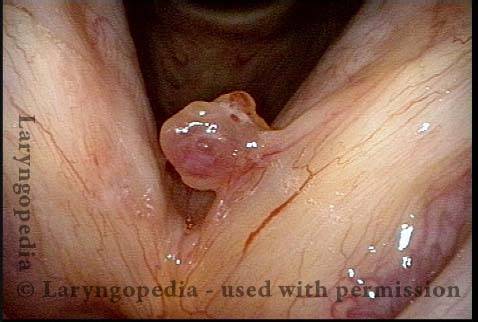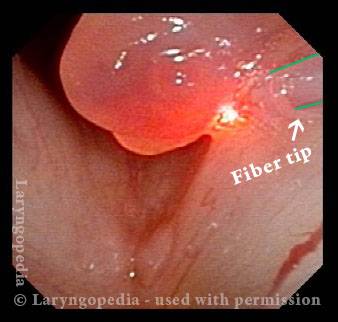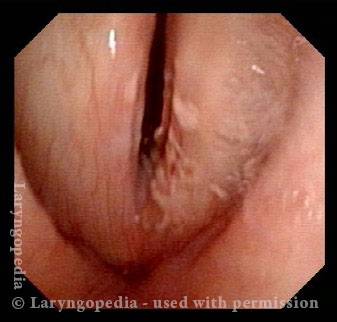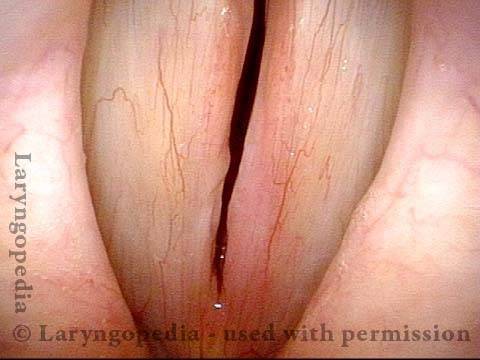Vocal Overdoer Syndrome
Vocal overdoer syndrome is a term coined by Dr. Anat Keidar and Dr. Robert Bastian1 to designate an individual whose amount and manner of voice use can be considered excessive and to thereby put the person at risk of mucosal injury.
Typically, the vocal overdoer syndrome comprises two parts:
- Innate talkativeness
- A life circumstance (occupation, performance, family, hobby, social) that permits, invites, or demands much voice use.
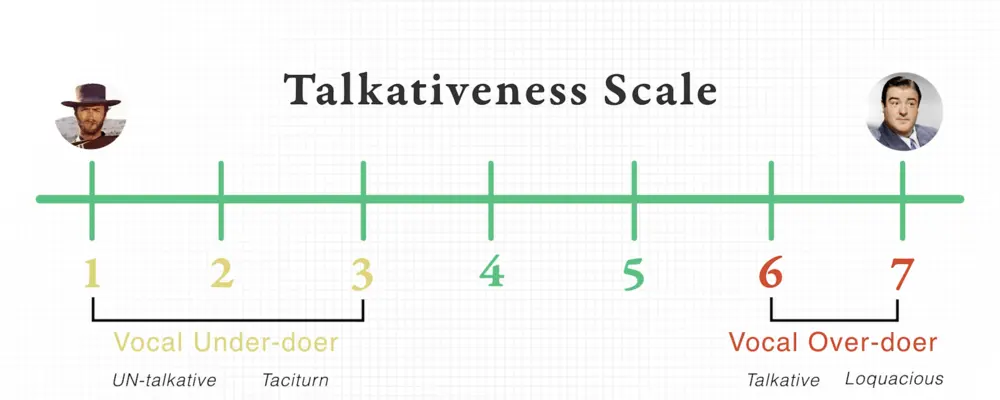
Mottled Vocal Cord Mucosa May Hide Glottic Sulci
Vocal cord swelling and mucosa (1 of 4)
Vocal cord swelling and mucosa (1 of 4)
Same view under strobe light (2 of 4)
Same view under strobe light (2 of 4)
Closed phase (3 of 4)
Closed phase (3 of 4)
Glottic sulcus is visible (4 of 4)
Glottic sulcus is visible (4 of 4)
A Hemorrhagic Polyp that is Pedunculated
Hemorrhagic polyp (1 of 4)
Hemorrhagic polyp (1 of 4)
Laser removal (2 of 4)
Laser removal (2 of 4)
Voice immediately improves (3 of 4)
Voice immediately improves (3 of 4)
5 months post-laser (4 of 4)
5 months post-laser (4 of 4)

Vocal Underdoer – Overdoer Continuum | Understanding Proper Voice Use
What is the Vocal Under-Doer and Vocal Over-Doer Continuum? Why is it an important concept for everyone interested in the voice (voice teachers, speech pathologists, voice doctors, singers, actors, etc.)? Because it provides critical insights into understanding and responding to potential voice disorders or risk of developing voice disorders.
Dr. Bastian’s 7-point “talkativeness scale” allows individuals to rate and become self-aware of their level of talkativeness and sociability.
“Vocal under-doers” may currently have, or eventually develop conditions such as vocal weakness, vocal inconfidence, and vocal fatigue.
On the other hand, “vocal over-doers” are more at risk than the average person of vocal cord injuries such as nodules and polyps. A “curriculum” is suggested by Dr. Bastian for persons on each end of the under-doer / over-doer continuum.
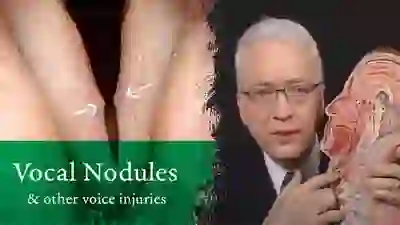
Nodules and Other Vocal Cord Injuries: How They Occur and Can Be Treated
This video explains how nodules and other vocal cord injuries occur: by excessive vibration of the vocal cords, which happens with vocal overuse.
Having laid that foundational understanding, the video goes on to explore the roles of treatment options like voice therapy and vocal cord microsurgery.
- Bastian RW. The vocal overdoer syndrome: a useful concept from the voice clinic. Journal of Singing. 2002; 58(5): 411-13. [↩]




